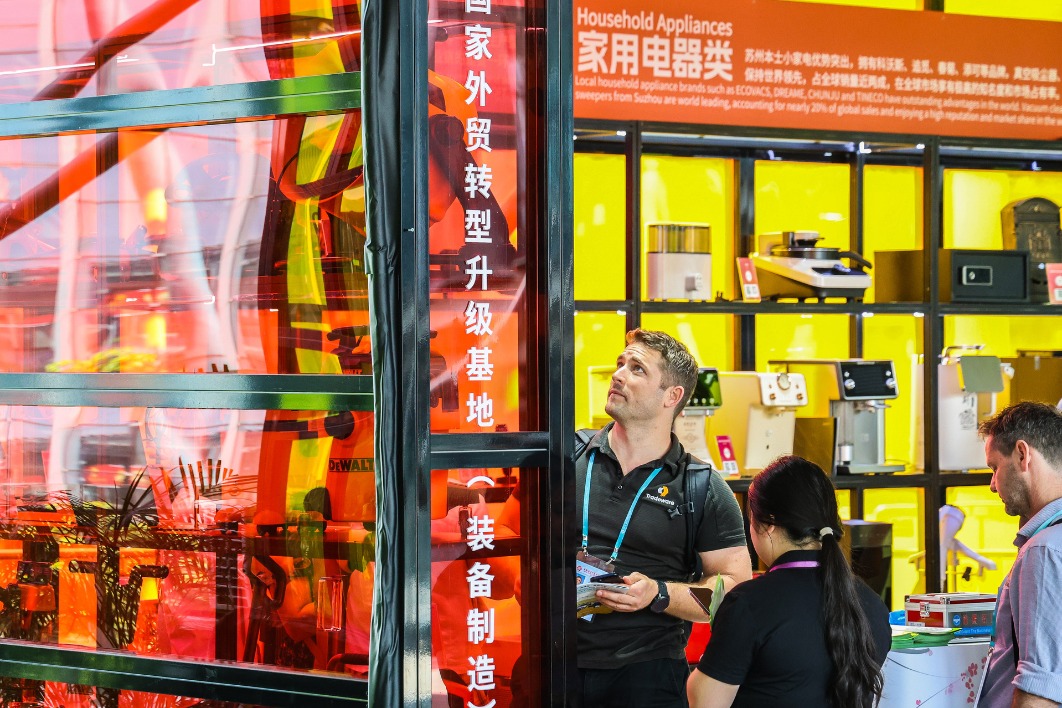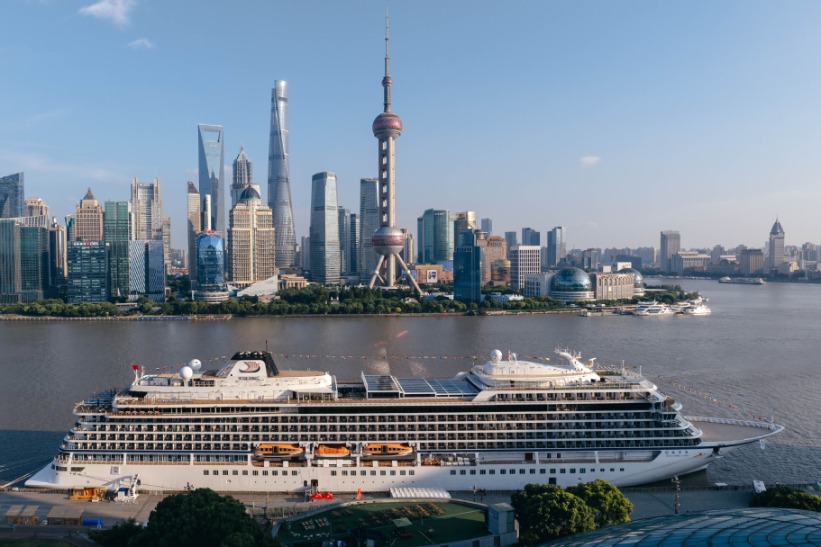Smaller is beautiful for foreign firms


Nation's lower-tier cities are becoming 'bigger, richer, and more eager to spend'
The unleashed consumption power of lower-tier cities in China has become sweet music for foreign exhibitors at the second China International Import Expo in Shanghai, as a growing number of smaller companies from those cities have purchased a considerable amount of imported goods at the event.
Kongque International Co Ltd, a private firm from Cangnan county, East China's Zhejiang province, signed a deal with German cooking appliance provider Miji.
"With the deal, up to five types of small home appliances, including radiant cookers and vacuum cups, will be available to local users," said Li Xiaoqu, chairman of Kongque, adding that the total amount is 20 percent more than that of last year.
At this year's expo, there has been a rise of small-and medium-sized companies among the purchasing groups. Private companies accounted for 67 percent of the total registered firms, said Sun Chenghai, deputy director of the CIIE bureau.
More than 500,000 purchasers from both home and abroad had registered to participate in the expo, including SMEs and private firms from 600 purchasing groups across China, the bureau's latest data showed.
"It echoed the expo's original purpose of involving more SMEs as we believe that the future growth of such purchases will mainly come from those companies," Sun added.
Behind such purchasing power is a new consumption norm in the country, a trend featuring residents of smaller cities, who are looking more to imported goods and have a growing appetite to spend.
China's lower-tier cities are becoming "bigger, richer, and more eager to spend" and such consumption could triple to $6.9 trillion by 2030, according to a report from Morgan Stanley.
"The CIIE offers foreign exhibitors a precious opportunity, proving that a small investment could bring a ten thousand-fold profit," said Zhao Ping, head of international trade research at the China Council for the Promotion of International Trade.
For most overseas companies, China's huge consumption power not only comes from top-tier cities but also from the vast smaller cities, even ones in rural areas, she added.
"We see huge potential from Chinese consumers living in lower-tier cities, which just like those in bigger cities, are showing a desire for a quality life," said Ian Brighthope, non-executive director of Nutrition Care, a healthcare company from Australia.
At the expo, Pakistani pine nut company Halo Foods inked a deal with Chinese snack startup Bestore. Under the deal, Bestore will purchase 300 million yuan of pine nuts from the company.
"It is through such Chinese companies that we can further reach more consumers and tap into the potential of the Chinese market," said Shahbaz Siddique, financial head of Halo Foods.
The purchase amount of pine nuts by Bestore accounts for 10 to 20 percent of Pakistan's annual pine nut exports on average, he said.




































